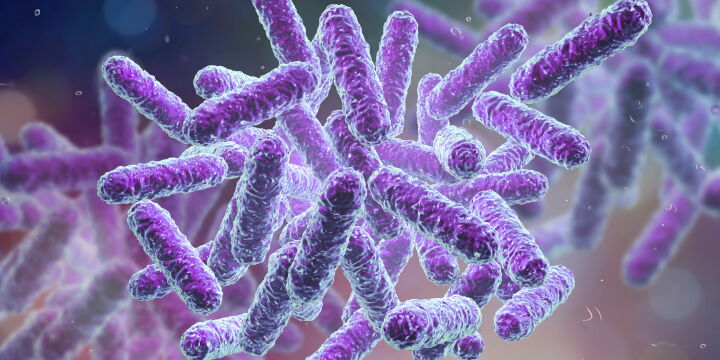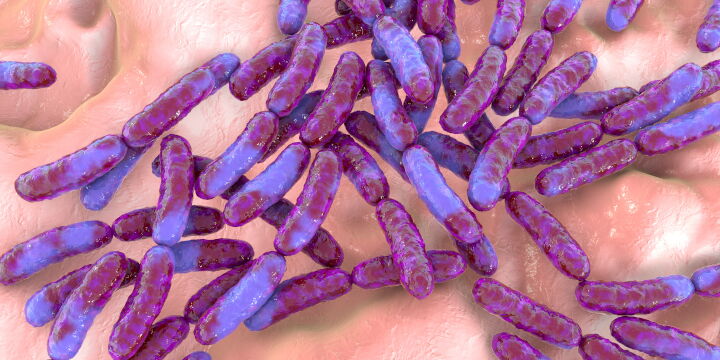Probiotics and prebiotics: what are?
The terms prebiotic and probiotic are very similar and this similarity can cause confusion for those who meet them for the first time or who are interested in the subject.
The most direct explanation, and certainly the most widespread, is that which sees probiotics described as "the good bacteria that, arriving alive in our intestine, exert a positive effect by helping to restore the balance of the flora" and prebiotics as "particular fibers that are good for the microbiota and health ".
Although these definitions perfectly convey the idea, to better understand the topic of probiotics and prebiotics but also to answer as many questions as possible, it is appropriate to refer to more precise definitions and also give a connotation to the term intestinal microbiota.

What is the microbiota and what role it play?
Intestinal microbiota refers to the set of bacteria that colonize the intestinal tract.
Their number is estimated to be almost equal to that of the cells of the human body and, precisely because of this large number and the very important role that these bacteria play, the host-bacteria system is defined as a "super organism".
The gut microbiota has many roles and is very important for maintaining host health:
- synthesis of short-chain fatty acids (SCFAs) which takes place thanks to the fermentation of non-digestible complex carbohydrates (GOS, FOS, non-starch polysaccharides)
- synthesis of essential vitamins.
The short-chain fatty acids produced are mainly 3:
- acetic acid
- propionic acid
- butyric acid
These have anti-inflammatory action, implement the intestinal barrier function and contribute to the normal functioning of the immune system.
Furthermore, acetic acid used as an energy substrate and in the synthesis of fats, while propionic acid used for the synthesis of glucose from non-glucose substrates (gluconeogenesis).

Why is important know what the microbiota is?
The importance of having a basic understanding is that this allows us to better understand the role and context in which probiotics and prebiotics are used.
Looking at the definitions that describe them, according to which:
- probiotics are live microorganisms that when administered in adequate quantities confer beneficial effects to the health of the host
- a prebiotic according to the definition provided by the FAO Technical Meeting on Prebiotics is a non-vital food constituent that confers a benefit to health by modulating the microbiota
some important details are deduced.
Probiotics, in fact, must be alive and arrive alive in the gastrointestinal tract in order to carry out their activity and confer benefits to the health of the host.
Bacteria must overcome the gastrointestinal barrier and be able to settle in the intestine where the bacteria that are part of the intestinal microbiota are already located, which represent a source of resistance to colonization.
From this comes the importance of taking a dose that is able to colonize the specific intestine for each bacterial strain.

When we talk about prebiotics, however, aren't referring to live microorganisms but to constituents of non-digestible foods that are fermented by intestinal bacteria giving rise to the formation of SCFAs and modulating the microbiota itself by changing its composition.
In the event that prebiotics and probiotics are used together to enrich a food, there will be a functional food containing a combined system of the two components.
The latter is called a synbiotic.
he reflection made on the importance of definitions plays a very important role in that, especially in the case of prebiotics, it allows to underline the importance of satisfying the conditions described above to meet an effective assumption and to underline how we are talking a real interaction between microorganisms and host.
The concept according to which we assume a living "something" that crosses our body and that arrives unscathed in our intestine or that bacteria already present, which have evolved with us since birth, ferment non-digestible food components, is a something that differs from the normal "passive" idea we have of the concept of food and opens the way to a vision of interaction as complex as it is fascinating.

Effects of probiotics and prebiotics on health
Probiotics have several positive health effects including:
- reduction and prevention of constipation and diarrheal phenomena
- improve symptoms due to irritable bowel syndrome
- anti-inflammatory effect
- antibacterial effect
To these functions is added the ability to increase the bioavailability and synthesis of some nutrients and, for some strains, the antioxidant action.
In addition to those mentioned, probiotics have the ability to support the immune system.
Prebiotics appear to have positive effects on:
- bone health with the ability to increase calcium absorption
- reduction of inflammatory phenomena affecting the intestine
- ability to regulate blood sugar level
- increase in the speed of intestinal transit.

Considerations and advice on Yamamoto Nutrition products
The use of probiotics and prebiotics can be implemented in a targeted way through the advice of health professionals both with dietary adaptations and through the consumption of functional foods and supplements.
As always, attention must be paid to adopting a healthy lifestyle and a balanced diet. If a need arises and you choose to resort to a special supplement, Yamamoto Nutrition is always able to provide products that meet extremely high quality standards.
Two examples are the probiotic Lactomel which increases the excretion of cholesterol by reducing its absorption and the prebiotic Normolax capable of implementing intestinal transit.
Although, given its complexity, the topic undoubtedly deserves further investigation, it is possible and even desirable that, through the reading of this article, greater awareness has been acquired about what is being dealt with and that, above all, the desire to seek always beyond even starting from the rigidity of a definition giving space to curiosity that always pushes the positive growth of the human being.
